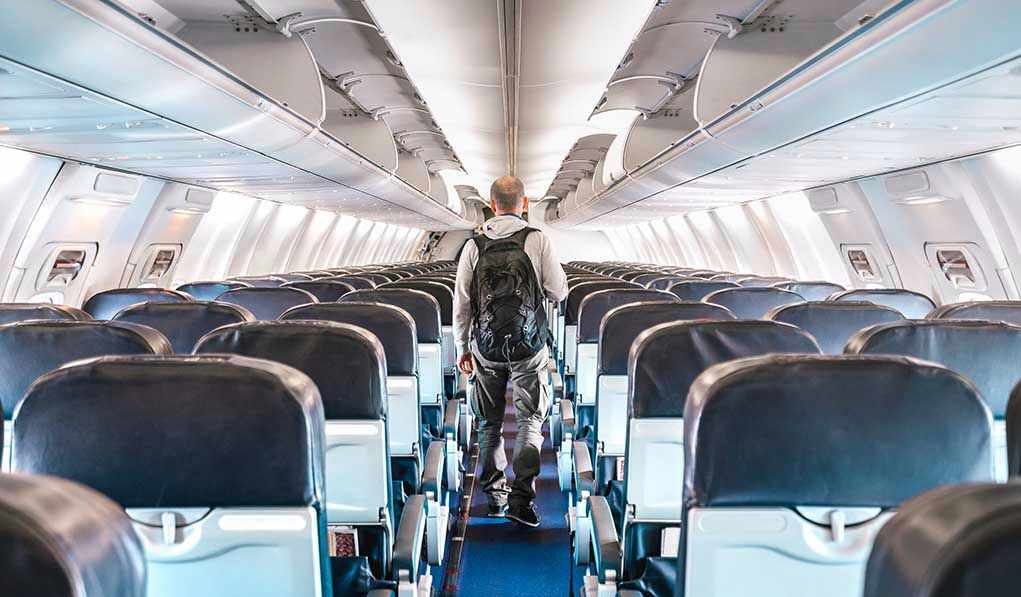
A passenger’s cannabis use a triggered a two-hour delay and renewed the national debate over federal law, personal rights, and airline safety in the post-Biden era.
Story Snapshot
- Passenger removed from flight after consuming cannabis, violating federal law despite state legalization.
- Incident caused a two-hour delay and forced law enforcement intervention at landing.
- Airlines and federal agencies reaffirm zero-tolerance policies for in-flight substance use.
- Case highlights ongoing conflict between state cannabis laws and federal regulations governing air travel.
Cannabis Violation Sparks Two-Hour Flight Delay and Passenger Removal
A routine domestic flight departing from a major airport in a legal cannabis state was disrupted after a passenger was caught consuming cannabis during the journey. The incident, which forced a two-hour delay as law enforcement responded upon landing, underscores the widening gap between state-legalized marijuana and the federal regulations that govern America’s skies. Despite recreational cannabis being lawful in over 20 states, federal law remains clear: marijuana is strictly prohibited on all commercial flights, regardless of departure point or passenger intent.
Flight attendants, trained to enforce federal aviation safety protocols, detected the violation when the distinct odor of cannabis was noticed in the cabin and subsequently traced to the passenger in question. The crew immediately notified the captain, who followed established procedures by alerting federal authorities and preparing for a coordinated response upon arrival. The passenger was detained by local law enforcement officers at the gate, and an investigation was launched to determine the extent of the violation and whether additional charges would be pursued under the Controlled Substances Act.
Federal Law Versus State Legalization: A Regulatory Collision
The episode is only the latest in a series of confrontations between evolving state cannabis laws and unyielding federal restrictions. As of 2024, 24 states and Washington, D.C. have legalized recreational marijuana, but the federal government still classifies cannabis as a Schedule I substance under the Controlled Substances Act. The Federal Aviation Administration (FAA) and Transportation Security Administration (TSA) have both reiterated that cannabis is banned on all commercial flights, with the FAA explicitly warning, “Cannabis is prohibited on all commercial flights, regardless of state law” (FAA, 2023). TSA’s own guidance makes clear that while their primary focus is on security threats, any discovery of marijuana is referred to law enforcement for prosecution (TSA, 2024).
Airlines have responded with strict zero-tolerance policies, routinely reminding passengers that bringing or using cannabis on board can result in removal from the aircraft, arrest, and permanent bans from future travel. The consequences ripple beyond the individual, with entire flights delayed, diverted, or even canceled in some cases. Such disruptions cost airlines millions annually and add to broader frustration over the seeming inability of federal and state governments to reconcile their legal frameworks.
Safety, Rights, and the Push for Federal Reform
Industry experts and public health officials have weighed in on the risks posed by in-flight substance use. Aviation security professionals point to safety implications, including passenger impairment, interference with crew duties, and the potential for in-air emergencies (Aviation Security International, 2023). Legal analysts emphasize the ongoing legal jeopardy for travelers, especially those unaware of the legal distinction between state and federal jurisdictions. “The federal prohibition on marijuana creates confusion and puts passengers at risk of arrest and prosecution, even when departing from states that have legalized recreational use,” notes the Brookings Institution (2022).
Advocacy groups and some lawmakers are calling for harmonization of cannabis laws, arguing that federal policy is outdated and fails to reflect the reality on the ground. Yet, law enforcement and regulatory agencies stress the need for clear, enforceable rules to maintain order and safety in the nation’s airways. Until Congress acts on federal reform, the message from airlines and government agencies remains unchanged: cannabis and commercial air travel do not mix, and violations will be met with swift enforcement.
Ongoing Enforcement and Passenger Confusion
The pattern of enforcement continues, especially on flights originating in states where cannabis is legal. Incidents like the recent two-hour delay serve as cautionary tales for travelers, highlighting the disconnect between personal rights under state law and the supremacy of federal regulations. Airlines and airport authorities have increased signage and public awareness campaigns, but confusion persists. Passengers risk not only arrest and fines, but also the possibility of being placed on no-fly lists or facing lasting travel restrictions.
The broader industry impact is substantial: operational disruptions, reputational risk for carriers, and mounting pressure on Congress to address the federal-state conflict. Until lawmakers resolve this legal gray zone, passengers will continue to navigate a complicated and often perilous path when it comes to cannabis and air travel—at the risk of their own freedom and the smooth operation of America’s airlines.
Sources:
FAA. (2023). “Cannabis and Air Travel: What You Need to Know.”
TSA. (2024). “Traveling with Marijuana.”
NBC News. (2019). “JetBlue flight diverted after passenger vapes marijuana oil.”
Brookings Institution. (2022). “The Legal Status of Marijuana and Federal-State Conflict.”
Aviation Security International. (2023). “Substance Use and Aviation Safety.”











